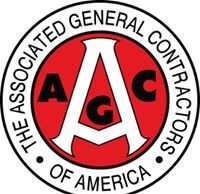Two HUD Offices issue radon policies covering housing they assist
WASHINGTON, DC – April 3, 2013 – (RealEstateRama) — The U.S. Department of Housing and Urban Development has taken significant steps towards eliminating radon exposure in renter-occupied homes by issuing two new policies that will incorporate radon testing and mitigation into HUD programs to help prevent some of the estimated 21,000 lung cancer deaths radon causes in the United States every year.
HUD’s Office of Multifamily Housing new policy requires radon testing and, if applicable, mitigation for most new FHA-insured construction, conversion and substantial rehabilitation projects, as well as most FHA-insured refinance transactions. Radon testing and mitigation is not required for refinance projects located in low risk areas, or if a certified Radon Professional determines that radon risk is sufficiently low for the project.
“We are confident that this policy will effectively mitigate the risks of radon exposure for residents of FHA-insured multifamily housing in a sensible and cost effective way,” said Marie Head, Deputy Assistant Secretary of HUD’s Office of Multifamily Housing Programs.
Radon is a priority of the Federal Radon Action Plan, developed by a federal government interagency team chaired by the U.S. Environmental Protection Agency (EPA). “This invisible air hazard in homes is preventable and there are straight-forward, low-cost solutions to protect families against radon risks,” said Janet McCabe, EPA Principal Deputy Assistant Administrator for the Office of Air and Radiation. These new HUD policies will better protect thousands of Americans in the years ahead.”
The notice published by HUD’s Office of Public and Indian Housing’s informs Public Housing Agencies about the risks from radon exposure, and points out that the best way to mitigate radon is to prevent it from ever entering a building. The Notice strongly encourages Public Housing Agencies to proactively plan and complete radon testing and mitigation.
“Our radon policy is an important first step to raise awareness about the dangers of radon,” noted Sandra B. Henriquez, HUD’s Assistant Secretary for Public and Indian Housing. “We look forward to continuing to examine additional ways that radon testing and mitigation can be incorporated into HUD’s Public and Indian Housing programs.”
“These two HUD Offices have started a policy movement we hope all owners of multifamily housing will consider,” said Jon L. Gant, Director of HUD’s Office of Healthy Homes and Lead Hazard Control.
For more information on the Multifamily radon policy, please visit the HUD website (Mortgagee Letter 2013-07 is available at http://portal.hud.gov/hudportal/documents/huddoc?id=13-07ml.pdf; and Housing Notice 2013-03 is available at http://portal.hud.gov/hudportal/documents/huddoc?id=13-03hsgn.pdf).
For more information on the PIH radon notice, please visit the HUD website (Notice PIH 2013-06 is available at http://portal.hud.gov/hudportal/documents/huddoc?id=13-06pihn.pdf).
For more information on the Federal Radon Action Plan and accomplishments implementing it, please visit the EPA’s website (the Action Plan is available at http://www.epa.gov/radon/action_plan.html).
###
HUD’s mission is to create strong, sustainable, inclusive communities and quality affordable homes for all.
HUD is working to strengthen the housing market to bolster the economy and protect consumers; meet the
need for quality affordable rental homes: utilize housing as a platform for improving quality of life; build
inclusive and sustainable communities free from discrimination; and transform the way HUD does business.
More information about HUD and its programs is available on the Internet at www.hud.gov and
http://espanol.hud.gov. You can also follow HUD on twitter @HUDnews, on facebook at
www.facebook.com/HUD, or sign up for news alerts on HUD’s News Listserv.
Contact:
Shantae Goodloe
(202) 708-0685














